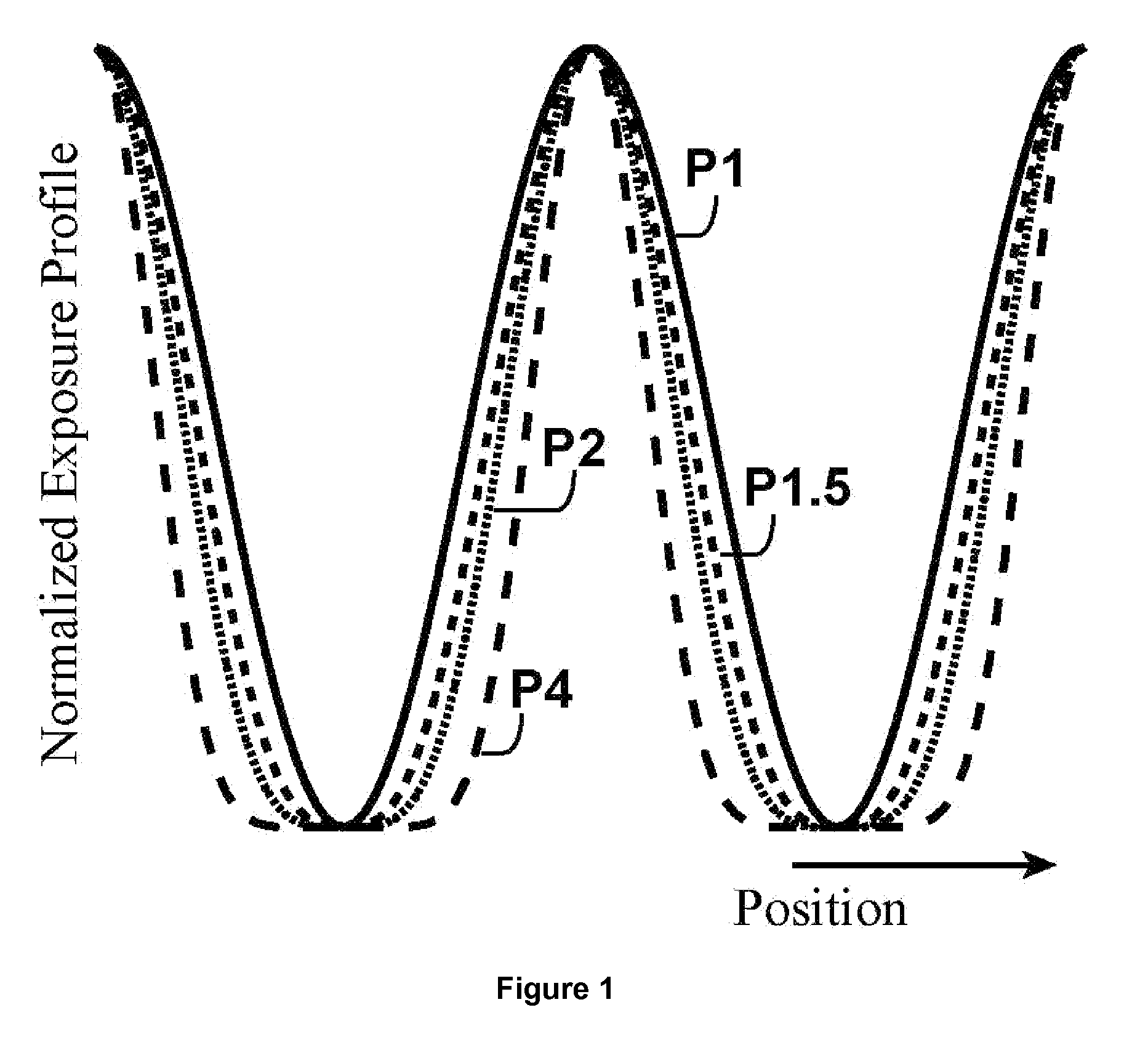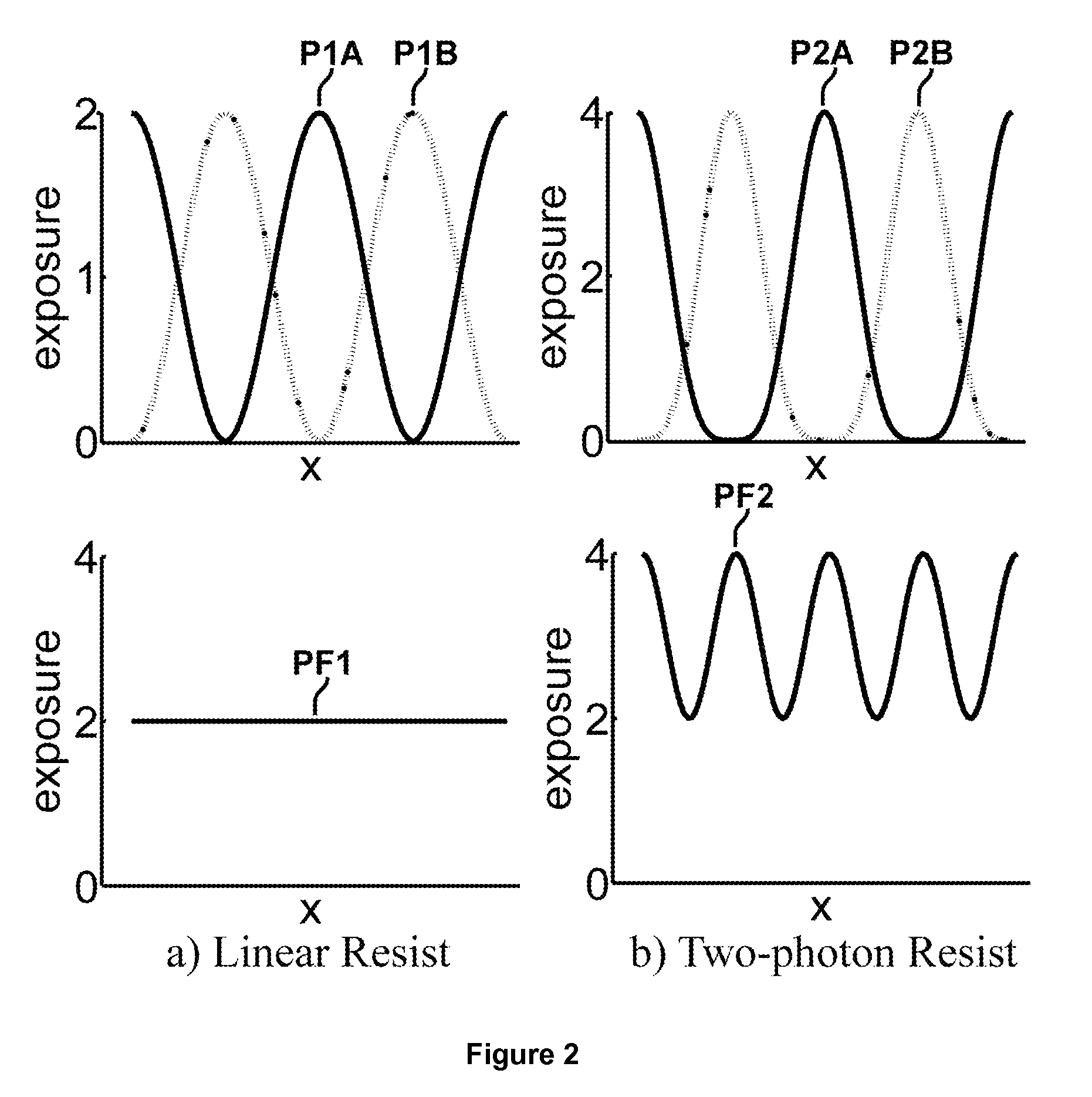Resists for lithography
a technology of resists and lithography, applied in the direction of photosensitive materials, instruments, photomechanical equipment, etc., can solve the problem of not generating patterns smaller than the diffraction limit, and achieve the effect of improving ic performance and growing in the semiconductor industry
- Summary
- Abstract
- Description
- Claims
- Application Information
AI Technical Summary
Benefits of technology
Problems solved by technology
Method used
Image
Examples
Embodiment Construction
[0086]A non-limiting illustrative example of a double patterning process using I2 resist to create trenches is shown in FIG. 4. In FIG. 4a, a substrate (SUB) is cleaned and treated accordingly. In FIG. 4b, a layer of said I2 resist (RE) is applied on top of the said substrate and a pre-bake is carried out to remove the solvent in the I2 resist. FIG. 4c, an exposure using a lithographic process is then provided to expose the first group of desired areas (A1, A2) of said nonlinear resist. FIG. 4d, a second exposure is provided to expose the second group of desired areas (A3, A4) of said I2 resist. In FIG. 4e, the I2 resist is developed and the exposed area removed and a post bake is carried out. In FIG. 4f, an etch process is then carried out to create trenches (TR1, TR2, TR3, TR4) at the exposed area. And finally in FIG. 4g, the rest of the resist is stripped off.
[0087]A non-limiting illustrative example of a process to create two trenches is shown in FIG. 5. In FIG. 5a, a substrate ...
PUM
 Login to View More
Login to View More Abstract
Description
Claims
Application Information
 Login to View More
Login to View More - R&D
- Intellectual Property
- Life Sciences
- Materials
- Tech Scout
- Unparalleled Data Quality
- Higher Quality Content
- 60% Fewer Hallucinations
Browse by: Latest US Patents, China's latest patents, Technical Efficacy Thesaurus, Application Domain, Technology Topic, Popular Technical Reports.
© 2025 PatSnap. All rights reserved.Legal|Privacy policy|Modern Slavery Act Transparency Statement|Sitemap|About US| Contact US: help@patsnap.com



